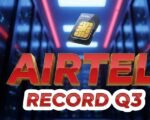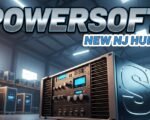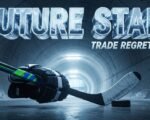Long Island startup’s waterless tech could reshape how solar farms stay efficient in the driest parts of the world
In a big boost for sustainable tech and local innovation, Superclean Glass, a startup based out of the Long Island High Technology Incubator, has secured $65,000 in grant funding from FuzeHub, a nonprofit that supports manufacturers across New York State.
Their mission? Build a scalable laser-based platform that makes solar panel cleaning smarter, cheaper — and critically — water-free.
Dust Might Sound Boring, But It’s a Solar Killer
It’s easy to overlook. A thin layer of dust on solar panels might seem harmless, but in the world of solar energy, it’s a silent efficiency killer.
Superclean Glass has figured out how to fight back. Their system doesn’t need water or elbow grease. Instead, it uses an electrodynamic shield to keep panels clean by repelling dust particles — kind of like an invisible forcefield for your rooftop PV array.
The timing couldn’t be better. Over 60% of solar panels worldwide are installed in dry, desert-like environments — places where water is scarce, labor costs are high, and dust settles faster than investment hype fades.
Here’s what happens when panels stay dirty:
-
10% or more drop in energy output
-
Shortened panel lifespan
-
Higher operating costs
-
Less return on clean energy investment
Now imagine if you didn’t have to wash them with gallons of potable water anymore.

From Lab to Line: FuzeHub’s Backing Powers Manufacturing Scale-Up
This isn’t just a napkin sketch or a university prototype. Superclean Glass is aiming to bring its laser manufacturing platform to full production scale — and that’s exactly what the FuzeHub grant is helping fund.
The money comes through the Jeff Lawrence Innovation Fund, which awarded a total of $390,000 in its latest round to six recipients statewide. That includes companies working on assistive mobility, smart infrastructure, medical devices, and now, solar tech that doesn’t need a mop.
Patty Rechberger, FuzeHub’s innovation fund manager, put it plainly: “These awardees will unleash positive impacts in communities everywhere, showcasing the strength and commitment of New Yorkers to a better future.”
Ben Verschueren, from Empire State Development, echoed the sentiment. “Modern manufacturing relies on innovation and collaboration,” he said. “Their work will advance cutting-edge solutions while also strengthening our economy.”
In other words: this isn’t just good for solar — it’s good for jobs, too.
One-sentence breather here.
Why Waterless Cleaning Is a Global Gamechanger
There’s no denying the scale of the solar boom. In 2024 alone, over 300 GW of new solar capacity was added globally, much of it in arid regions like India, the Middle East, and the American Southwest. But maintenance remains a dirty secret.
Current methods?
-
Trucked-in water
-
Manual labor with squeegees
-
High-risk roof climbs
-
Expensive robotic arms
It’s inefficient, risky, and — ironically — environmentally problematic. In some regions, solar farms end up using more water to clean panels than some villages use in a month.
That’s where Superclean’s platform comes in. It scales. It’s automated. And it removes one of solar’s biggest operational headaches.
Let’s Talk Numbers: Who Got What From FuzeHub?
The funding announcement included six recipients, each bringing a different flavor of tech to the table. Here’s how the grants broke down:
| Company | Location | Sector Focus | Grant Amount |
|---|---|---|---|
| Superclean Glass | Stony Brook, NY | Solar / Clean Tech | $65,000 |
| Company B (anonymized) | Rochester, NY | Medical Devices | $75,000 |
| Company C | Albany, NY | Smart Infrastructure | $70,000 |
| Company D | Buffalo, NY | Assistive Mobility | $60,000 |
| Company E | Syracuse, NY | Green Building Materials | $65,000 |
| Company F | Schenectady, NY | AgTech | $55,000 |
Superclean’s project stood out for its commercial readiness and the fact that it targets a critical pain point in a global clean energy sector. The tech itself might seem niche, but the problem it solves is anything but.
Local Innovation With Global Potential
For Long Island, this is also a win. The region has long positioned itself as a hub for scientific research and clean energy innovation — especially with institutions like Stony Brook University and Brookhaven National Laboratory in the neighborhood.
Superclean Glass is part of that growing ecosystem. And while the company is still in its scaling phase, the early interest has been strong — especially from solar developers in California and Arizona, where sand and sun go hand-in-hand.
One executive close to the company said they’ve had “serious talks” with two major U.S. solar integrators looking to pilot the system in desert environments.
“It’s a pain point everyone has, but no one really solved it affordably,” they said. “Until now, maybe.”








